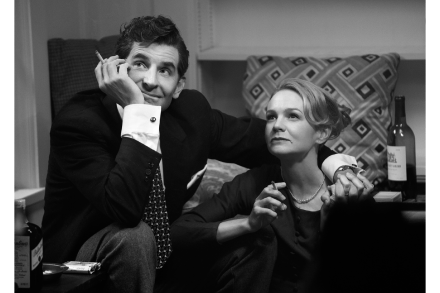You’ll want all the characters to die: Infinite Life, at the Dorfman Theatre, reviewed
Infinite Life is about five American women, all dumpling-shaped, who sit in a hotel garden observing a hunger strike. Some of them haven’t touched food for days, some for weeks. ‘Don’t be afraid to puke,’ counsels one of the dumplings. ‘Puking is good.’ They pass their afternoons wittering inanely about nothing at all. One dumpling is an air hostess, another works in banking, a third has a job as a fast-food executive. Or so they claim. Each of the dumplings might be lying to the others but it would make no difference because nothing connects them, and they have no stake in the situation other than the desire to burn




















